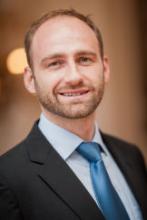Low voter turnout is a global phenomenon at presidential and all levels of parliamentary elections. In Europe the overall trend has been negative since the 1970s. While the European Elections of 2019 indeed saw an increase in turnout, in fact, the voter turnout in eight out of 28 member states still decreased and a majority of eligible voters in 15 out of 28 member states – representing 36 percent of the total number of European citizens – did not exercise their right to vote at all. In the long run, however, low turnout rates call into question the legitimizing power of elections, because they jeopardize a basic idea in modern democracies: the ideal of political equality. This leads us to the research question, which is whether lower turnout in second-order European elections lead to greater social distortion in comparison to first-order national elections.
Michael Kaeding, Professor for Europen Union Politics at the University of Duisburg-Essen (Germany) and UW-Madison Carl Schurz Professor. His recent publications include "The European elections 2019" (2020), " Euroscepticism and the Future of Europe" (2020), and "The Future of Europe. Views from the Capitals" (2018).
